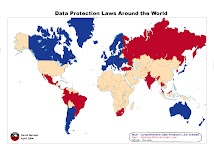It took a bitter divorce case for Ms Labeur to be discovered for the fraud she is. Her husband decided to inform the authorities during the divorce; can one safely assume that she would have gone undetected otherwise? It is cases like this that demonstrate the huge pitfalls of not peforming even the most cursory checks before appointing an employee or an expert. This will undoubtedly lead to lawsuits, as the outcome of several cases may have to be re-examined.
____________________________________________________
Adam Sage in Paris reports:
Régine Labeur was hailed as a respected psychologist whose evidence was pivotal in more than 400 trials in the Dordogne, southwest France. She testified in criminal cases, explaining, for instance, the hidden character of serial rapists or the trauma suffered by families and friends of murder victims.
She also played a central role in many divorce cases, assessing the emotional stability of parents seeking the residency of their children. So when officials discovered that she had apparently never qualified as a psychologist, there was widespread stupefaction.
Mrs Labeur, 53, is accused of fooling judicial authorities with false certificates that went undiscovered for four years.
She has been placed under formal investigation on suspicion of fraud and usurping the title of psychologist and faces a maximum sentence of five years in prison and a fine of €75,000 (£67,000).
Maître Frédérique Pohu-Panier, her lawyer, declined to comment on the allegations. The inquiry is understood to have started when Mrs Labeur’s husband, from whom she is divorcing, told police that she lacked qualifications.
“It’s incomprehensible,” Françoise Lorrin, another judicial psychologist in the Dordogne, said. “When I applied, I submitted my degrees and also scientific publications, which prove your competence.” Le Parisien newspaper said there was no record that Mrs Labeur had published a single paper.
“Certain filters didn’t work,” Yves Squercioni, the state prosecutor in Périgueux in the Dordogne, said. “You can’t become a judicial expert through improvisation.”
Mr Squercioni ruled out a review of the cases in which Mrs Labeur had given evidence, despite the fraud claims. However, a lawyer in the Dordogne told The Times: “A number of us are looking at the possibility of lodging appeals. It is difficult because the French judicial system is always very reluctant to reopen cases that have been judged.
“But it might be possible to overturn rulings in cases where her reports were critical — in custody cases where she wrote that a father was psychologically incapable of looking after his children, for example.”
The scandal is reminiscent of the French film Intimate Stranger, in which the actor Fabrice Luchini played a false psychoanalyst. It also highlights the importance of l’expert psychologue in the French judicial system.
Last month, for example, Mrs Labeur was called to Dordogne Criminal Court to tell the jury about Thierry Caballero, a serial rapist, after a consultation with him while he was in prison awaiting trial.
Her words were damning: “He is far removed from reality as far as his actions are concerned, he does not feel any remorse, he is incapable of controlling his urges.” She said that Caballero, who was sentenced to 14 years in jail, had a “fragile” character and added: “Perhaps he has a hidden side.”
According to Le Parisien, Mrs Labeur earned €60,000 a year for her reports for French justice — a significant sum given that many of France’s 40,000 fully qualified psychologists struggle to make a living.
Tuesday, 19 May 2009
Subscribe to:
Post Comments (Atom)




No comments:
Post a Comment